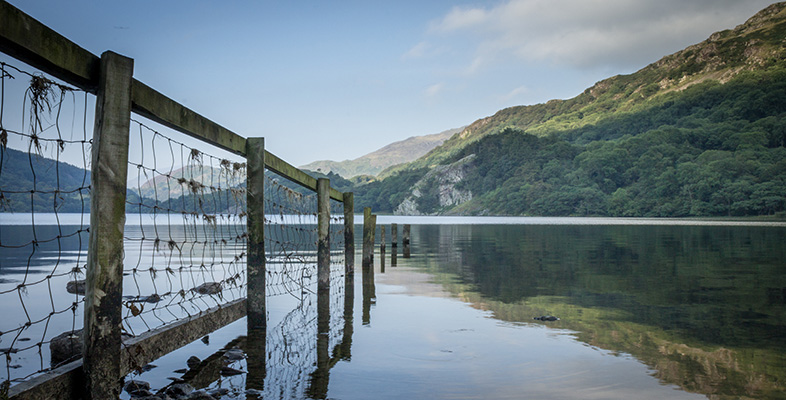Wales glossary
Wales glossary
Browse the glossary using this index
Special | A | B | C | D | E | F | G | H | I | J | K | L | M | N | O | P | Q | R | S | T | U | V | W | X | Y | Z | ALL
L |
|---|
Laudian High ChurchmenAnglicans following the example of Archbishop Laud (1573–1645) who emphasised the Catholic inheritance of the Church of England in opposition to the Puritans. | |
Laws of Hywel DdaHywel Dda, died 950, ruler of Ceredigion and Ystrad Tywi. Initiated the codification of Welsh laws in the tenth century, although the first extant manuscript of the laws is from the twelfth century. Welsh law was vital to a sense of Welsh nationality before the conquest. | |
LeaseholdA form of manorial land tenure. | |
Leeland, JohnHenry VIII’s Royal Antiquary. | |
Les Ruines | |
Lewis, ElfedNineteenth- and twentieth-century Welsh hymn writer, minister, poet. One of the greatest names in Welsh nonconformity. Born Carmarthenshire. | |
Lewis, Richard (Dic Penderyn)(1808–1831). Born in Aberafon, Glamorgan, and worked as a miner at Merthyr Tydfil. His nickname came from the village of Penderyn, where he lived. Participated in the Merthyr Rising, and was tried and convicted for the murder of a soldier of the Highland Regiment, which was sent to restore order during the Rising. Although believed by many to be innocent, Lewis was hanged in St. Mary Street, Cardiff on August 13, 1831. | |
Lewis, Saunders(1893–1985). Welsh-language academic, poet and writer born in Wallasey, Merseyside. He was a founder of Plaid Genedlaethol Cymru, of which he became first president. Convicted for involvement in the fire at Penyberth ‘bombing school’ in 1936. His radio speech Tynged yr Iaith (‘the fate of the language’) in 1962 inspired the forming of Cymdeithas yr Iaith Gymraeg. | |
Lewis, Sir J. HerbertFlintshire-born. Close friend of Lloyd George, MP. Educationalist. | |
Lhuyd, Edward(1660–1709) Welsh scholar and keeper of the Ashmolean Museum, Oxford. | |
LieutenancyCollective term for the deputy-lieutenants of a county. | |
Lloyd George, MeganDaughter of Lloyd George. Liberal MP, later Labour MP, for Carmarthenshire. | |
Llwyd, Morgan | |
LlŷnThe peninsular part of north-west Wales. | |
Llywarch HenEarly Welsh hero, to whom a series of poems written in the ninth and tenth centuries was attributed. | |
Llywelyn ab Iorwerth (Llywelyn Fawr/Llywelyn the Great)(c.1173–1240), prince of Gwynedd, where he consolidated his power before moving into neighbouring territories, having his conquests recognised by Henry III under the Treaty of Worcester in 1218. He continued to extend his dominance in north and mid Wales, and although he did not adopt the title ‘Prince of Wales’, in 1230 he adopted the style ‘Prince of Aberffraw and Lord of Snowdon.’ His last years were marked by his efforts to ensure the succession of his son Dafydd. | |
Llywelyn ap Gruffudd ap Rhys (Llywelyn Bren)(c.1173–1240), prince of Gwynedd where he consolidated his power before moving into neighbouring territories, having his conquests recognised by Henry III under the Treaty of Worcester in 1218. He continued to extend his dominance in north and mid Wales, and although he did not adopt the title ‘Prince of Wales’, in 1230 he adopted the style ‘Prince of Aberffraw and Lord of Snowdon.’ His last years were marked by his efforts to ensure the succession of his son Dafydd. | |
Llywelyn ap Gruffudd (Llywelyn the Last)(c. 1223-1282). Prince of Gwynedd who took advantage of civil war in England to proclaim himself ‘Prince of Wales’ in 1258. By the Treaty of Montgomery in 1267, Edward I recognised this title, but failure to do homage to Edward led to Edward’s conquest of north Wales in 1277 and Llywelyn’s submission at the Treaty of Aberconwy. A new revolt against English dominance sparked by Llywelyn’s brother Dafydd led to Llywelyn’s death at Cilmeri in 1282. | |
Llywelyn the Great | |
Local Boards of HealthSee Public Health Acts. | |
Local Government Act, 1888Provided for elected county and county brough councils. | |
Local Option / Local Veto BillAllowing ratepayers in certain geographical areas to exercise greater control over the sale of alcohol. The bill introduced in 1890 would have facilitated total prohibition in cases where this was the choice of at least two-thirds of ratepayers. It received the support of the majority of Welsh MPs, but was finally dropped in July 1891. | |
London Welsh Girls Friendly Aid SocietyDuring the 1920s and 1930s large numbers of young girls from Wales went to London as domestic servants. This Society was established to help ease the often traumatic transition. | |
Loutherbourg, Philippe de(1740–1812) German landscape artist. | |
